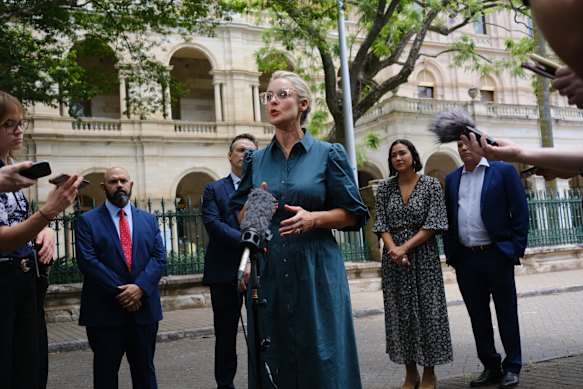
The Queensland Council of Social Service (QCOSS) plans to meet with officials from the Youth Justice Department next week to discuss new contract terms that may restrict frontline youth justice groups from engaging with the media. QCOSS Chief Executive Aimee McVeigh has expressed concerns shared by community leaders regarding these changes, which they argue could undermine the ability of community services to address critical public policy issues.
In a statement following the revelation of these concerns, McVeigh stated, “We have received an invitation to meet with the department next week to have discussions about the contracts, and we would hope that there will be reconsideration of these terms.” She emphasized the importance of ensuring that any adjustments made to contracts genuinely protect the rights of vulnerable young people rather than limit the communication of community organizations.
Concerns Over Contractual Changes
The issues stem from a recent document released on the Youth Justice website in July 2023, outlining the “contractual requirements” for non-government organizations delivering youth justice services. The changes have raised alarm within the sector, with leaders fearing that the enforcement of existing contracts may also be altered, a claim the government has denied.
McVeigh pointed out that while the sector is supportive of legitimate adjustments aimed at improving protections for young people, it is essential that these changes do not lead to increased restrictions on community services. “If there are legitimate issues that require adjustments to contracts to ensure better protections for the rights of vulnerable young people, the sector will, of course, be wanting to support that,” she stated.
The Crisafulli government has made commitments to enhance youth justice programs since taking office, focusing on a range of new initiatives funded through partnerships with various non-government organizations. However, the recent developments have raised questions about the balance between ensuring accountability and allowing organizations the freedom to discuss their work and its implications publicly.
Impact on Community Services
The potential implications of these changes are significant. Leaders within the youth justice sector fear that restricting communication could hinder transparency and limit the public’s understanding of the challenges facing vulnerable youth in Queensland. The ability of organizations to advocate for policy changes and improvements in youth justice practices is crucial for driving meaningful progress.
As the upcoming meeting approaches, all eyes will be on the discussion between QCOSS and the Youth Justice Department. The outcome may set a precedent for how youth justice services operate in Queensland, potentially impacting the broader landscape of social services in the state.
The QCOSS is urging the government to consider the voices of frontline workers and community organizations in shaping policies that affect the lives of young people. The meeting next week represents a pivotal opportunity for stakeholders to express their concerns and work toward a collaborative approach that prioritizes the well-being of Queensland’s youth.






